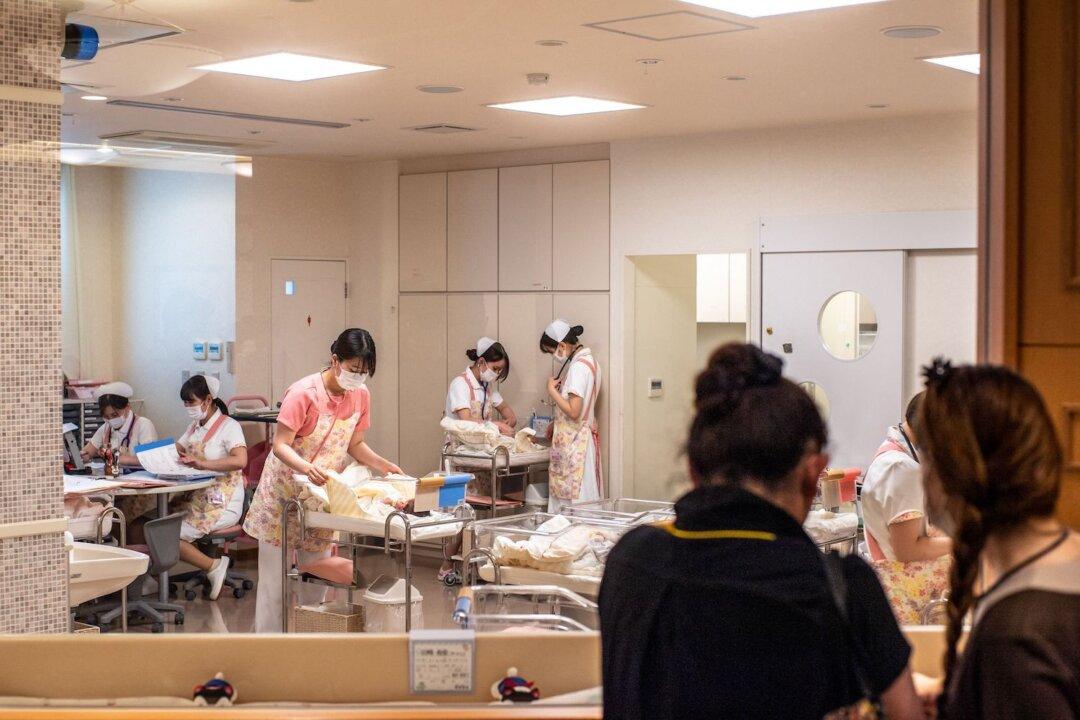Japan’s birth rate declined to a record low for the seventh consecutive year, with the number of babies born falling below 800,000 this year, health ministry data showed on June 2.
The number of newborns in Japan fell to 770,747 this year, down 40,875 from the previous year and the lowest since the country began record-keeping in 1899, Kyodo News reported, citing health ministry data.





